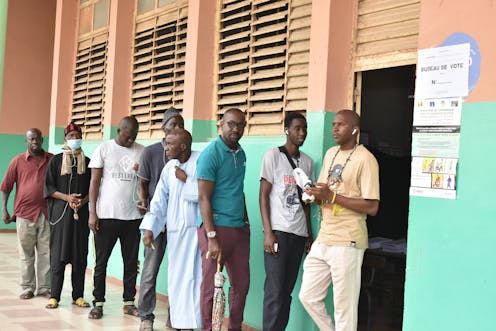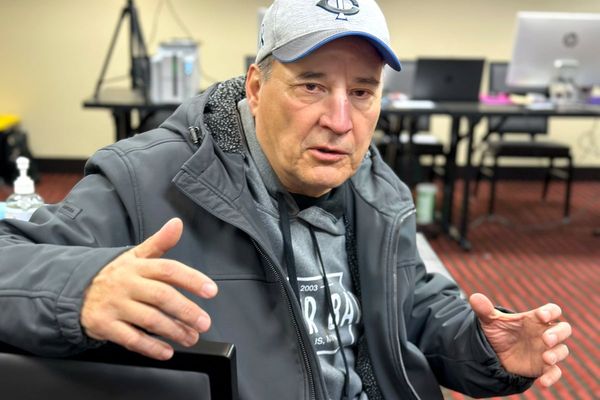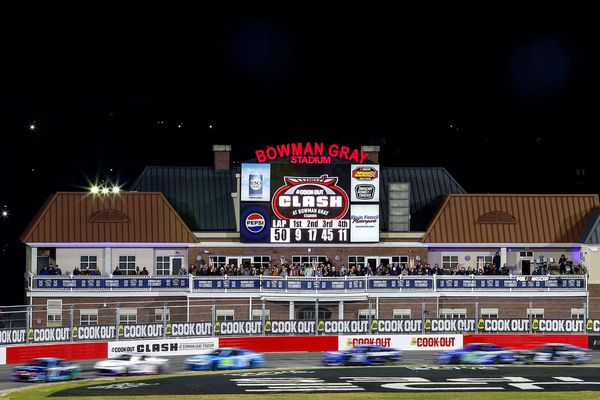
In July 2022 Senegalese voters converged at polling stations to elect 165 members of parliament (MPs) to represent them in the National Assembly.
Despite a tense campaign period, low voter turnout (46%), and the opposition’s calls to secure the votes in certain localities, election day remained peaceful and highly competitive.
From the eight major political coalitions that entered the electoral race, two emerged at the top. The stakes were high: just six months before the poll, the ruling coalition Benno Bokk Yakkaar had lost the major cities in municipal, regional and mayoral elections. In the run-up to the elections, some commentators suggested the coalition’s performance would indicate what support there was for the incumbent, President Macky Sall, and his potential attempt to run for a third term in 2024.
In broad terms, these legislative elections were seen to reflect the ability of the opposition and the electorate to buoy democracy and check presidential ambitions to overstay.
Opposition gains ground
That’s the message they seemed to send: Benno Bokk Yakkaar’s electorate dwindled again, especially in urban areas. In cities and towns the Yewwi Askan Wi Wallu coalition, made up of two opposition groupings, won by a landslide.
In the end, Benno Bokk Yakkaar obtained 82 MPs and Yewwi Askan Wi earned 80.
For the first time in Senegal’s political history, an opposition front managed to dog the presidential coalition and impose a split parliament with no absolute majority.
The opposition’s breakthrough can be attributed to the dramatic fall in the popularity of Sall and his coalition. The electorate had become increasingly vocal in its demands for more accountability, justice and better socio-economic conditions.
Another contributory factor was the alliance of two major opposition coalitions. This political strategy derailed the presidential camp.
The alliance also benefited from “Sonkomania”, the popular support for Ousmane Sonko, aged 48. Sonko entered the political scene in 2014 when he formed his political party Senegalese Patriots for Work and Ethics. He remains popular despite a rape allegation case against him still pending in court, which he claims is politically motivated.
Sonko himself wasn’t able to run in the legislative contest: the primary list of candidates to which he belonged was disqualified because it did not respect the gender parity law. Nevertheless, he remained (along with Barthelemy Dias, the mayor of Dakar) the flagbearer of Yewwi Askan Wi. Voter support for this coalition was widely interpreted as being mobilised by Sonko’s popularity and the critique he has rallied against establishment incumbents.
Sonko’s image as an incorruptible former civil servant and an anti-system politician drew more voters to Yewwi Askan Wi. He promised to hold the executive accountable for financial scandals through parliamentary actions. He also had a strong presence online and on the ground to mobilise supporters. The Yewwi Askan Wi-Wallu coalition built its electoral campaign around his image.
All eyes are now on the 2024 presidential elections. The ruling coalition’s major setback casts new light on what could happen. The contest is shaping up to give the Senegalese a significant and competitive election, leaving voters in the driver’s seat.
Who is Ousmane Sonko?
After earning a master’s degree in public law in 1999 at Université Gaston Berger, Sonko joined the prestigious National School of Administration.
As a tax inspector, he occupied a high-ranking position in the Senegalese civil service before being fired in 2016 for exposing and denouncing unethical practices in the national administration.
In 2017, he was elected to the National Assembly. He increasingly became the leading voice of the opposition. In March 2021, he was arrested on disorderly conduct charges on his way to the court in Dakar to begin the legal proceedings on the rape charges. His adherents followed his motorcade to court, protesting as a brigade of opposition. The situation escalated as the police attempted to disperse them. Subsequently, Sonko was arrested for public order disturbance and participating in an unauthorised demonstration.
This sparked an unprecedented uprising, with protests shutting down the major cities. Violence destroyed public infrastructure and French businesses were looted. Fourteen people died and more than 600 were seriously injured. For many, the arrest of a leading opposition figure over political protests by his supporters was viewed as an attack on democracy.
These events solidified Sonko’s popular support and consolidated his stature as a serious contender for the presidency, and opposition leader.
Given his third-place standing in the 2019 election and the growth of his political base, he can certainly force a runoff election in 2024. His eligibility to run, however, will be determined by the outcome of the rape charge he faces.
Chances for 2024
Much of the uncertainty about 2024 hinges on whether Macky Sall decides to seek a third term. He has so far refused to answer that question, which has cost him in terms of popularity.
For the Senegalese electorate, the long presidencies of Léopold Senghor (20 years) and Abdou Diouf (19 years) are a bygone era.
The country has embraced the idea of two-term presidencies, and the incumbent’s honeymoon won’t last more than a decade, as Sall’s predecessor Abdoulaye Wade found out.
Still, should Sall decide to seek a third term, he would have to clear a number of hurdles.
The first one is the Constitutional Court, which would rule on the legality of his candidacy.
Then he would face a number of opposition figures: Sonko, of course, but also potentially Barthelemy Dias, and possibly Khalifa Sall (a former mayor of Dakar) and Karim Wade.
None of the candidates is likely to earn a majority of the votes (50% plus one) in the first round. But, as Sall well knows, in 2000 and 2012 the incumbent lost the presidential elections when forced to a second round.
Should Sall not seek another term, his party is still in dire straits as it has not cultivated a national figure that would take over the party’s leadership. And it might be too late for such a figure to emerge.
Sonko is well positioned for the 2024 elections – especially if he manages to make inroads with the electorate in rural areas. That would build on his solid popularity with urban voters.
Implications for Senegalese democracy
For some, Sonko’s candidacy represents a new course for representation, accountability and quality of governance in Senegal.
By not aligning with the incumbent coalition, he offers an anti-establishment view and a contrast to veteran rivals.
His reputation as a whistleblower continues to drive electoral support, along with his attention to issues of debt, exploitation of natural resources, poverty, underfunded health and education systems and corruption.
The authors do not work for, consult, own shares in or receive funding from any company or organisation that would benefit from this article, and have disclosed no relevant affiliations beyond their academic appointment.
This article was originally published on The Conversation. Read the original article.







